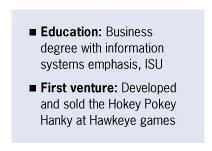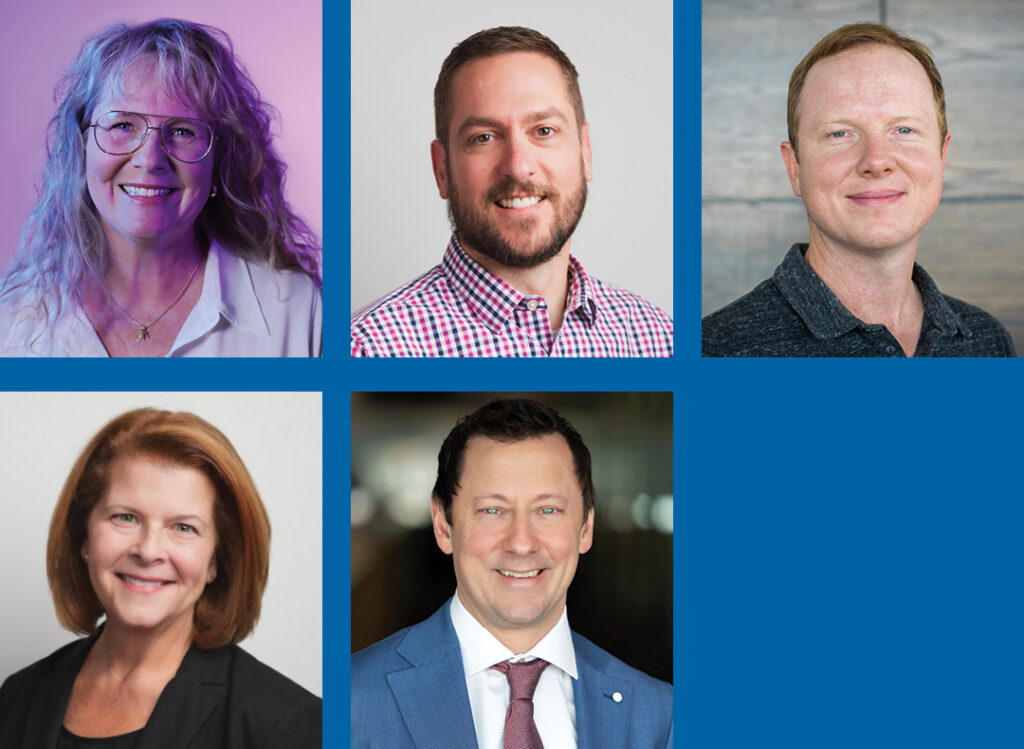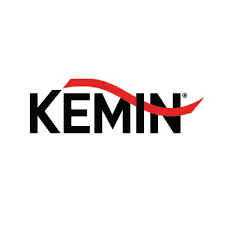David Gion: President, Canvis LLC

David Gion likes to joke that by the time he learns everything he’s supposed to know about being a successful business owner, “I’ll be 85 and then die of a heart attack.”
 Gion, 42, a self-described serial entrepreneur, has launched four businesses over the past two decades. His latest venture is Canvis LLC, a software development company specializing in construction management applications.
Gion, 42, a self-described serial entrepreneur, has launched four businesses over the past two decades. His latest venture is Canvis LLC, a software development company specializing in construction management applications.
The Iowa State University graduate started his first business while he was still in college, selling the “Hokey Pokey Hanky” to football fans of that other college, the University of Iowa. After graduation, he and a business partner formed The Gallery Group, a software consulting company in the Research Triangle area of North Carolina, and in 2001 they launched a business specializing in organizing social events for professionals.
“I’ve done everything on the software side, from architecture to development and testing and project management,” Gion said. “I kept just going up the chain, asking, ‘Why are we building this software in the first place?’ (Potential customers) have to care enough to take some green money out of their wallet and give it to you.”
The opportunity to launch Canvis came about when one of his national consulting clients, The Weitz Co., hired Gion in 2007 to determine the viability of turning a software program the construction company had developed in-house into a stand-alone business. The Web-based program provides a real-time visual interface for contractors to display upgrades and options for custom home buyers, and enables the information to be securely stored in one place.
“When I first saw the product (Blue Fingerprint), I was like, really, that’s it?” Gion recalled. “The aha moment came when Weitz asked me to go out to a job site so that I could see how they did it the old way. So I went out to a site on a Saturday afternoon, and after that, I got it. I said, ‘OK, I think there’s something here.’”
In 2008, Gion’s team of consultants added a second product, a construction job completion punch list software program called Punch It.
“Then the Great Recession hits, and rightfully, Weitz said, ‘We can’t even have this on our radar,’” Gion said. “We had a team of three people, and I said, ‘What if I spun it out and bought it from you?’ They were very amenable to that, so we worked out an arrangement because they still wanted to be able to use the products. So really, 2010 was our year of getting our shingle out there and proactively marketing.”
Canvis currently has six employees working from the West Des Moines Business Incubator, where the company leases office space. Keeping the start-up company alive despite the recession has been a significant challenge, Gion said.
“We knew in 2009 that 2010 was going to be a low point for construction,” he said. “I thought, ‘That’s OK, because we’ll have to do some basic things to get it in place.’ We were expecting the construction industry to go low, but we just weren’t expecting it to go that low.”
Canvis recently developed a version of Blue Fingerprint for the renovation market, which is one of the few growth areas in the commercial construction industry. Meanwhile, the company has put Punch It on hold for now, because the technology for such mobile applications is evolving so rapidly, he said.
Gion’s experience from his previous ventures has given him perspective that is helping him to weather Canvis’ slower-than-expected start-up phase. For instance, Gion recalled how a Big Ten football loss to Michigan, which ended the Hawkeyes’ chances of going to the Rose Bowl, put the kibosh on what had been fairly brisk sales of his Hokey Pokey Hanky product for a couple of seasons.
“After that game, I had people walking by swearing at me, throwing the Hokey Pokey Hankies at me,” Gion recalled. “The thing that I learned there was timing. I had no control over that outcome. You have good ideas at the wrong time; you can have everything come together and still have something like that happen.”
In starting Canvis, Gion said he has found the Des Moines business community to be “extremely helpful” in providing advice and assistance. “The challenge is, you don’t always know who to ask,” he said.
With help from the Business Innovation Zone, an entrepreneurial accelerator program of the Greater Des Moines Partnership, Canvis in November secured matching funds of $50,000 from the state’s Technology and Commercialization Fund, which Gion credited with helping the company survive.
“And I knew a couple of people who had actually approached me to say, ‘If you do this, we can put a little money into it, not a lot,’ he said. “And I’ve always felt it’s good to put a little bit of your own money in to have skin in the game, but it’s always good to have other people put money in because if you can get five or six people to invest, I think that’s a validation, too.”
Gion also knows that as a business adapts to changes in the market, the resulting company may look much different from when it started out. It’s a piece of advice he passes along to younger entrepreneurs.
“A check that I always ask people is: Are you willing to do this for five years?” he said. “And if the industry changes and you have to adapt to that, do you have the passion to keep doing it?”











